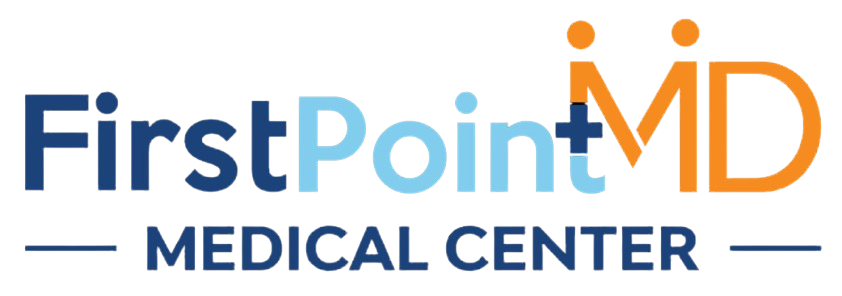Optimizing Your Medication Plan: Working with Your Doctor

Every day’s life has many things to deal with, especially medication management can be a daunting process in a fast-paced world. If an individual is a chronic patient or a person with transitory disorders, a well-organized medication plan is the first step in the course of a well-structured remedy. To be precise FirstPointMD is a medical institute located in Long Island, NY. Here you will find the medication management services by specialists and thus you will be guided through the whole medication plans that you can take as long as you are willing to follow them. This article aims to provide several ways and techniques to have an outstanding experience of the medication junction by means of being effective cooperation with the medical server of your choosing.
Understanding the Importance of an Optimized Medication Plan
According to the World Health Organization, the proper use of medication would be the key to the success of your health plan. An optimized plan can make a difference in the following ways:
Improved Health Outcomes: When taken in the required dosage, the medicine serves as the remedy in the process of disease prevention and even increases the person’s life quality.
Reduced Side Effects: The plan that has been specifically designed for you by your treating physician will decrease the likelihood to create disturbing side effects and thus you need to be keen on it to the last dose.
Enhanced Communication: The patient-doctor relationship should be improved through mutual trust which in turn would be the basis for a thorough discussion of all the might happen medical procedures if any are required.
Step 1: Prepare for Your Doctor’s Appointment
If you think about your health issue seriously, the speak you have with medical could be very successful. Here are the things you should do before you go for an appointment:
List Your Medications: Write down all medications you are currently taking, including over-the-counter medications, supplements, and prescriptions.
Track Symptoms: Take note of any symptoms to see when they are troubling you. Then, if any of the symptoms are more frequent than others, you will have better statistical data to tell your doctor which are the main ailments given that this information will be the basis of the diagnosis.
Set Goals: What are your objectives for the medication? Do you want to use the medication to get rid of the pain, lessen the side effects, or to cure a particular condition?
Step 2: Communicate Openly with Your Doctor
Good communication is vital for ensuring that the medication does what it was designed to do and this in turn will lead to a quick recovery. The following are some ways to do that:
Be Honest: Do not pretend to do the drugs as written when in reality you cannot stick to the regimen. Tell your doctor that you are facing the difficulty of doing the treatment.
Discuss Side Effects: If you have had any side effects, you should tell your doctor the exact drugs and their powers of side effects. This knowledge can be helpful to your doctor in modifying the dosages or even switching drugs.
Express Your Concerns: Moreover, you may share some doubts that you have especially related to the procedure you are put under which will push the physician to help solve them.
Step 3: Ask Questions
For the part of the prescribed therapies that you do not understand, ask questions. Nevertheless, the duration of the medication and the dosage, and indicating the effective nature of the solution are essential to proper compliance:
- What is the purpose of each medication?
- What can I do if I miss a dose?
- Might the medicine interact with other drugs or food in the body?
- What are the likely side effects and how can I manage them?
Step 4: Regularly Review Your Medication Plan
Certainly, the medication that may have been changed to some other kind may no longer be compatible with your health. That being said, one of the reasons why you should have frequent appointments with your doctor is to:
Assess Effectiveness: Review if the drug you are taking is promoting or inhibiting the symptoms of the condition.
Update Your List: Afterword, you can cross over the ones now unneeded with the addition of new ones that are needed.
Adjust Dosages: To this effect, the unfitting doses that you are on should be reconsidered and subjected to the current state of your health.
Step 5: Utilize Medication Management Services
At FirstPointMD we have skilled staff dealing with patients in a way that meets their specific needs and one of these ways are through our treatment programs. We also give:
Personalized Medication Reviews: Our comprehensive review of your medical history and present therapies is very importance to our therapeutic success.
Coordination with Healthcare Providers: Besides us, there are other health care providers and we establish cooperation with them to point to your health from all aspects.
Patient Education: Resources and education are thus available for learners (patients) to broaden their mental horizons and take a step towards better health.
Conclusion
Some may think that doing what the doctor tells you is the only way to go but participating in medication planning should not limit this relationship to better health only. A collaborative relationship with the patients that refers to patient education that makes understanding and self-management of the medication directory is key. At FirstPointMD in Long Island, NY, we are committed to empowering one’s self-medications management. By shows preparation, feedback sharing, asking questions, periodical consideration, and the use of our medication management services results in the desirable outcome hence are good for your rehabilitation. We make your health our priority, and no wonder, together we can arrive at the best possible solutions that will bring your health improvement.
Originally posted on July 31, 2024 @ 12:32 pm






